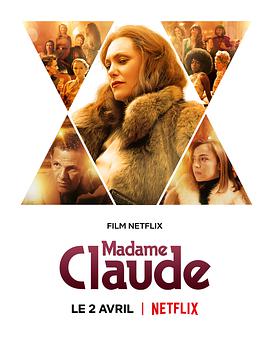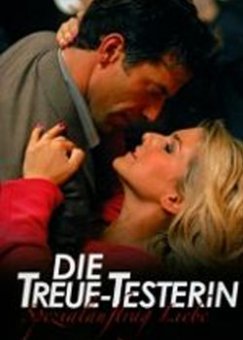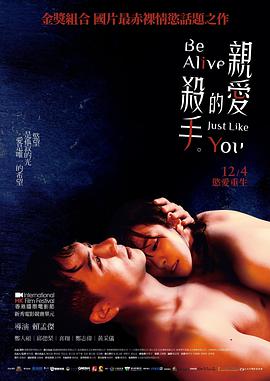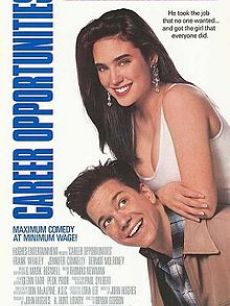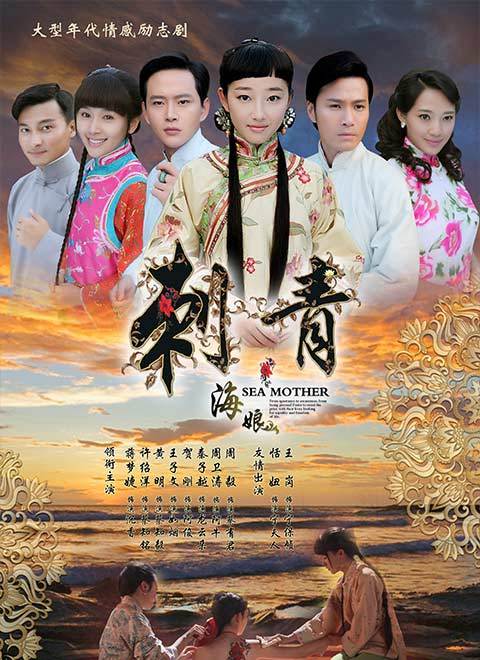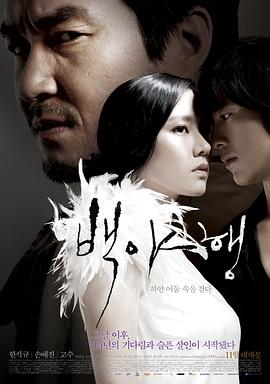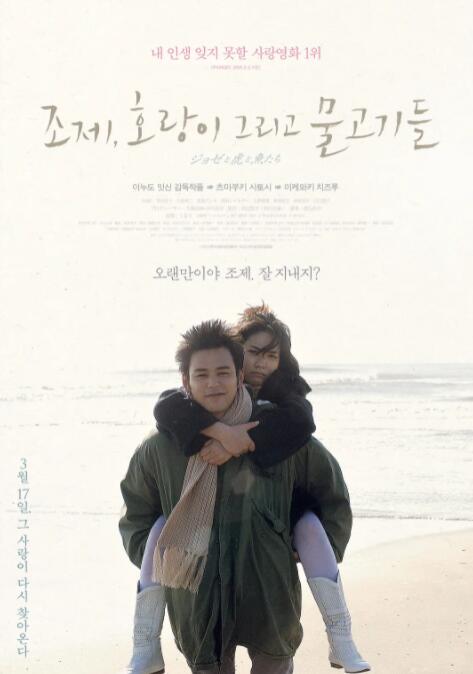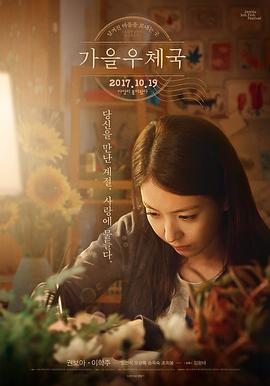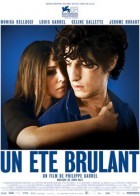- 西瓜云1
- HD中字
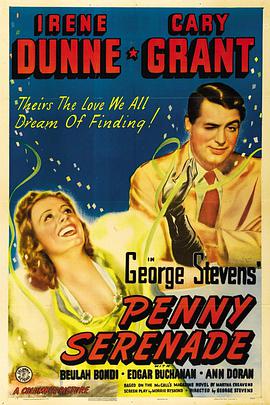
秋缠断肠记
- 主演:
- 艾琳·邓恩,加里·格兰特,比尤拉·邦蒂
- 备注:
- HD
- 类型:
- 爱情片
- 导演:
- 乔治·史蒂文斯
- 年代:
- 1941
- 地区:
- 美国
- 语言:
- 英语
- 更新:
- 2023-01-01 14:09
- 简介:
- 当一名新男友爱上一名唱片店女销售员时,她们旋风式的求爱并不能让她准备好迎接未来的爱情、浪漫和悲剧。她必须学会真爱的价值,或者面对现实...详细
当一名新男友爱上一名唱片店女销售员时,她们旋风式的求爱并不能让她准备好迎接未来的爱情、浪漫和悲剧。她必须学会真爱的价值,或者面对现实
Title: Penny Serenade
Year: 1941
Country: USA
Language: English
Genre: Drama, Romance
Director: George Stevens
Writer: Morrie Ryskind
based on the story Martha Cheavens
Music: W. Franke Harling
Cinematography: Joseph Walker
Cast:
Irene Dunne
Cary Grant
Edgar Buchanan
Beulah Bondi
Ann Doran
Eva Lee Kuney
Wallis Clark
Dorothy Adams
Rating: 7.0/10
The film reunites Irene Dunne and Cary Grant for the third and the last time, after their successful pairing in Leo McCarey's THE AWFUL TRUTH (1937) and MY FAVORITE WIFE (1940). Under the tutelage of George Stevens, PENNY SERENADE is a good-natured and polished melodrama where mishaps and glee alternately emerge around an average couple Julie (Dunne) and Roger Adams (Grant).
Opening with Julie assuming her deliberated departure from Roger in medias res, the narrative consists of a nexus of chronological flashback segued by various melodies in an album coined“The Story of a Happy Marriage" playing from the phonograph, as signifiers to Julie’s memories, how a tuneful and glitched YOU WERE MEAN FOR ME brings Roger to her life, their sequential romance, a spur-of-the-moment marriage and their spell in Japan due to Roger’s work where a seismic shock (both literally and metaphorically) leaves an irremediable missing link in their otherwise content life.
Back to US, Roger starts his print business from the scratch in a small town, that missing link will be mended through adoption, a new life is put into their care and they must get familiar with parental skills(where we get great comedic moments in its slice-of-life simulation)and fight for their baby girl against their unstable financial situation, only to come in for another hammer blow that will (almost) sabotage their marriage, if not for the problematic and expedient ending, the fond memory of a departed can be so quickly and miraculously displaced by the arrival of a new one, is it a blind faith deeply entrenched in the psyche of America at then or that marriage is so unbearable if not for the presence of an offspring? One would gratingly wonder.
Save for that reactionary deus ex machina, the film is a heartfelt blessing from Hollywood-land in a less glamorous and often depreciated genre of melodrama, the two leads give sterling performances here, both shorn of star vanity and completely carry the rather corny story on their own shoulders and shore it up with significant effort to sustain a touching but also realistic vibe that transmogrifies the picture with enduring charisma and yesteryear nostalgia. Cary received his first-ever Oscar nomination for this picture, his Oscar moment is that earnest plead in front of the judge, which rarely emblazons his dramatic showmanship to great extent, but Dunne, admittedly, is the fulcrum of the film here, she is self-deprecating but never shy of inner strength and orthodox femininity, quite a leading lady in her early 40s, why isn’t she more worshiped by new generations? She is the convention-bucking heroine of a sexism business and an impressive 5-times Oscar nominee. Also,Edgar Buchanan andBeulah Bondi both need a shout-out for their supporting turns, the former’s uncle Applejack is the bee’s knees every family needs whereas the latter is so primly respectable by her sheer appearance as the rule-breaking head of the adoption faculty, lastly, to sing a little praise to directorGeorge Stevens, what an even-handed actor’s director he is, his style is un-showy but after all, it is the torrid human emotion gets our attention and keeps us watching closely to his performers, that is a different kind of cinematic expertise which no one can deny.
referential point: George Stevens’ A PLACE IN THE SUN (1951, 8.1/10)"<>"" && "
Title: Penny Serenade
Year: 1941
Country: USA
Language: English
Genre: Drama, Romance
Director: George Stevens
Writer: Morrie Ryskind
based on the story Martha Cheavens
Music: W. Franke Harling
Cinematography: Joseph Walker
Cast:
Irene Dunne
Cary Grant
Edgar Buchanan
Beulah Bondi
Ann Doran
Eva Lee Kuney
Wallis Clark
Dorothy Adams
Rating: 7.0/10
The film reunites Irene Dunne and Cary Grant for the third and the last time, after their successful pairing in Leo McCarey's THE AWFUL TRUTH (1937) and MY FAVORITE WIFE (1940). Under the tutelage of George Stevens, PENNY SERENADE is a good-natured and polished melodrama where mishaps and glee alternately emerge around an average couple Julie (Dunne) and Roger Adams (Grant).
Opening with Julie assuming her deliberated departure from Roger in medias res, the narrative consists of a nexus of chronological flashback segued by various melodies in an album coined“The Story of a Happy Marriage" playing from the phonograph, as signifiers to Julie’s memories, how a tuneful and glitched YOU WERE MEAN FOR ME brings Roger to her life, their sequential romance, a spur-of-the-moment marriage and their spell in Japan due to Roger’s work where a seismic shock (both literally and metaphorically) leaves an irremediable missing link in their otherwise content life.
Back to US, Roger starts his print business from the scratch in a small town, that missing link will be mended through adoption, a new life is put into their care and they must get familiar with parental skills(where we get great comedic moments in its slice-of-life simulation)and fight for their baby girl against their unstable financial situation, only to come in for another hammer blow that will (almost) sabotage their marriage, if not for the problematic and expedient ending, the fond memory of a departed can be so quickly and miraculously displaced by the arrival of a new one, is it a blind faith deeply entrenched in the psyche of America at then or that marriage is so unbearable if not for the presence of an offspring? One would gratingly wonder.
Save for that reactionary deus ex machina, the film is a heartfelt blessing from Hollywood-land in a less glamorous and often depreciated genre of melodrama, the two leads give sterling performances here, both shorn of star vanity and completely carry the rather corny story on their own shoulders and shore it up with significant effort to sustain a touching but also realistic vibe that transmogrifies the picture with enduring charisma and yesteryear nostalgia. Cary received his first-ever Oscar nomination for this picture, his Oscar moment is that earnest plead in front of the judge, which rarely emblazons his dramatic showmanship to great extent, but Dunne, admittedly, is the fulcrum of the film here, she is self-deprecating but never shy of inner strength and orthodox femininity, quite a leading lady in her early 40s, why isn’t she more worshiped by new generations? She is the convention-bucking heroine of a sexism business and an impressive 5-times Oscar nominee. Also,Edgar Buchanan andBeulah Bondi both need a shout-out for their supporting turns, the former’s uncle Applejack is the bee’s knees every family needs whereas the latter is so primly respectable by her sheer appearance as the rule-breaking head of the adoption faculty, lastly, to sing a little praise to directorGeorge Stevens, what an even-handed actor’s director he is, his style is un-showy but after all, it is the torrid human emotion gets our attention and keeps us watching closely to his performers, that is a different kind of cinematic expertise which no one can deny.
referential point: George Stevens’ A PLACE IN THE SUN (1951, 8.1/10)"<>"暂时没有网友评论该影片"}
Title: Penny Serenade
Year: 1941
Country: USA
Language: English
Genre: Drama, Romance
Director: George Stevens
Writer: Morrie Ryskind
based on the story Martha Cheavens
Music: W. Franke Harling
Cinematography: Joseph Walker
Cast:
Irene Dunne
Cary Grant
Edgar Buchanan
Beulah Bondi
Ann Doran
Eva Lee Kuney
Wallis Clark
Dorothy Adams
Rating: 7.0/10
The film reunites Irene Dunne and Cary Grant for the third and the last time, after their successful pairing in Leo McCarey's THE AWFUL TRUTH (1937) and MY FAVORITE WIFE (1940). Under the tutelage of George Stevens, PENNY SERENADE is a good-natured and polished melodrama where mishaps and glee alternately emerge around an average couple Julie (Dunne) and Roger Adams (Grant).
Opening with Julie assuming her deliberated departure from Roger in medias res, the narrative consists of a nexus of chronological flashback segued by various melodies in an album coined“The Story of a Happy Marriage" playing from the phonograph, as signifiers to Julie’s memories, how a tuneful and glitched YOU WERE MEAN FOR ME brings Roger to her life, their sequential romance, a spur-of-the-moment marriage and their spell in Japan due to Roger’s work where a seismic shock (both literally and metaphorically) leaves an irremediable missing link in their otherwise content life.
Back to US, Roger starts his print business from the scratch in a small town, that missing link will be mended through adoption, a new life is put into their care and they must get familiar with parental skills(where we get great comedic moments in its slice-of-life simulation)and fight for their baby girl against their unstable financial situation, only to come in for another hammer blow that will (almost) sabotage their marriage, if not for the problematic and expedient ending, the fond memory of a departed can be so quickly and miraculously displaced by the arrival of a new one, is it a blind faith deeply entrenched in the psyche of America at then or that marriage is so unbearable if not for the presence of an offspring? One would gratingly wonder.
Save for that reactionary deus ex machina, the film is a heartfelt blessing from Hollywood-land in a less glamorous and often depreciated genre of melodrama, the two leads give sterling performances here, both shorn of star vanity and completely carry the rather corny story on their own shoulders and shore it up with significant effort to sustain a touching but also realistic vibe that transmogrifies the picture with enduring charisma and yesteryear nostalgia. Cary received his first-ever Oscar nomination for this picture, his Oscar moment is that earnest plead in front of the judge, which rarely emblazons his dramatic showmanship to great extent, but Dunne, admittedly, is the fulcrum of the film here, she is self-deprecating but never shy of inner strength and orthodox femininity, quite a leading lady in her early 40s, why isn’t she more worshiped by new generations? She is the convention-bucking heroine of a sexism business and an impressive 5-times Oscar nominee. Also,Edgar Buchanan andBeulah Bondi both need a shout-out for their supporting turns, the former’s uncle Applejack is the bee’s knees every family needs whereas the latter is so primly respectable by her sheer appearance as the rule-breaking head of the adoption faculty, lastly, to sing a little praise to directorGeorge Stevens, what an even-handed actor’s director he is, his style is un-showy but after all, it is the torrid human emotion gets our attention and keeps us watching closely to his performers, that is a different kind of cinematic expertise which no one can deny.
referential point: George Stevens’ A PLACE IN THE SUN (1951, 8.1/10)




